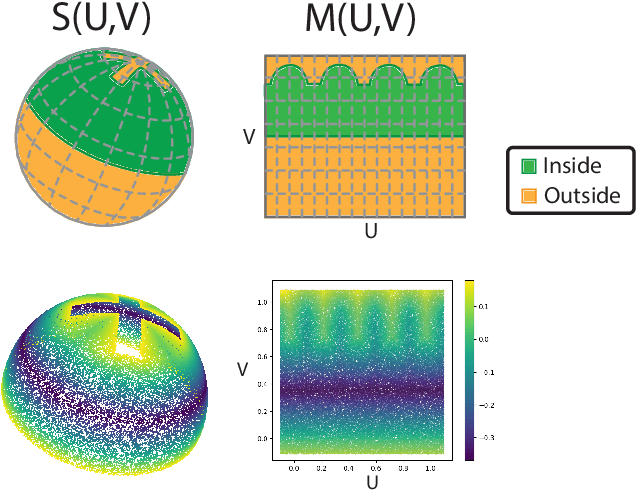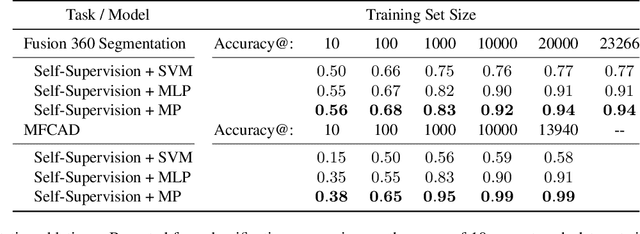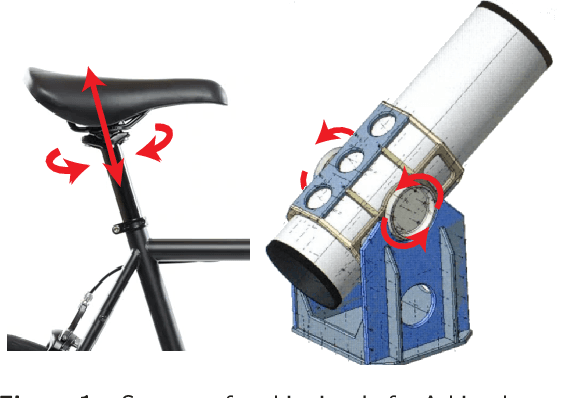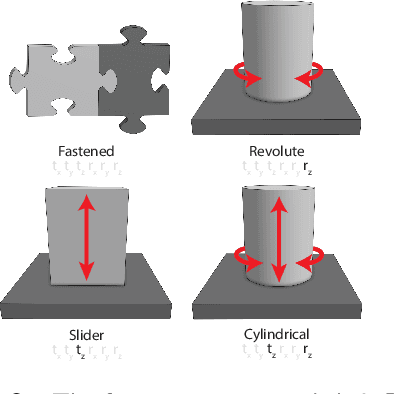Benjamin T. Jones
Self-Supervised Representation Learning for CAD
Oct 19, 2022



Abstract:The design of man-made objects is dominated by computer aided design (CAD) tools. Assisting design with data-driven machine learning methods is hampered by lack of labeled data in CAD's native format; the parametric boundary representation (B-Rep). Several data sets of mechanical parts in B-Rep format have recently been released for machine learning research. However, large scale databases are largely unlabeled, and labeled datasets are small. Additionally, task specific label sets are rare, and costly to annotate. This work proposes to leverage unlabeled CAD geometry on supervised learning tasks. We learn a novel, hybrid implicit/explicit surface representation for B-Rep geometry, and show that this pre-training significantly improves few-shot learning performance and also achieves state-of-the-art performance on several existing B-Rep benchmarks.
Mates2Motion: Learning How Mechanical CAD Assemblies Work
Aug 02, 2022

Abstract:We describe our work on inferring the degrees of freedom between mated parts in mechanical assemblies using deep learning on CAD representations. We train our model using a large dataset of real-world mechanical assemblies consisting of CAD parts and mates joining them together. We present methods for re-defining these mates to make them better reflect the motion of the assembly, as well as narrowing down the possible axes of motion. We also conduct a user study to create a motion-annotated test set with more reliable labels.
 Add to Chrome
Add to Chrome Add to Firefox
Add to Firefox Add to Edge
Add to Edge